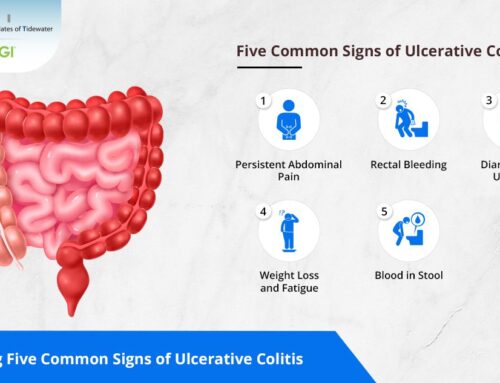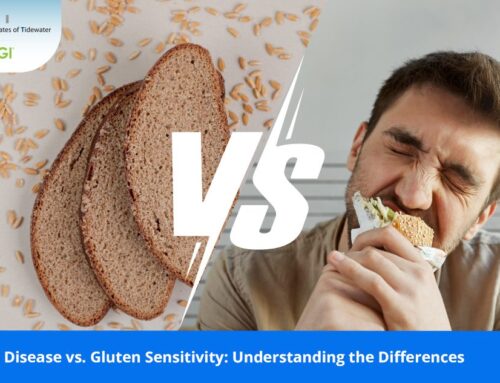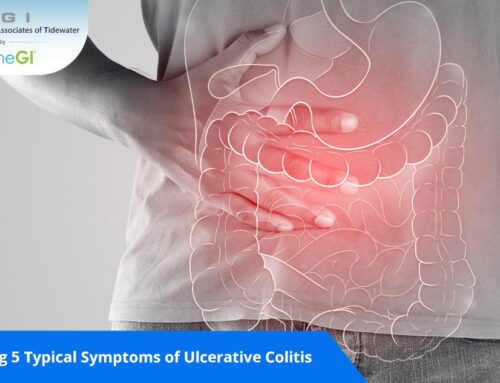We all want to live a long and healthy life. But colon cancer is one of the more common cancers in the United States, with about 1 out of 25 people developing colon or rectal cancer at some point during their lifetime. There are things you can do to help lower your risk for colon cancer.
Here are 6 ways that will help protect your colorectal health!
- Get screened for colon and rectal cancer
- Exercise regularly
- Maintain a healthy weight
- Eat a diet full of vegetables, fruits and whole grains.
- Limit alcohol consumption
- Quit smoking
Getting a screening or a colonoscopy can help find colon and rectal cancer early when treatment is most likely to be successful. The American Cancer Society recommends a colonoscopy every 10 years starting at age 45. It may be earlier for those with a family history of colon or rectal cancer. African Americans have a higher likelihood of developing colon cancer in their lifetime.
Early detection is important in colorectal health. A colonoscopy can identify precancerous growths or polyps commonly found in the colon or rectum and remove them before they have the opportunity to form into the colon or rectal cancer.
Consult with your doctor to discuss when is the best time to get a colon screening.
Regular exercise has been shown to lower colon cancer risk. But getting up and moving doesn’t have to be difficult – even a few minutes of walking can help. If you don’t have a regular exercise routine, start slow by moderately increasing your activity level so that you can gradually work up to a healthy exercise routine.
Being overweight or obese puts you at risk of developing colon and rectal cancer. Eating better and getting more exercise can help you manage your weight.
Include plant foods in your diet that are high in fiber, such as whole grains, fruits and vegetables. Drink water instead of sugary drinks.
Exercise at least 30 minutes most days of the week to help control weight and lower your colon or rectal cancer risk.
Eating lots of vegetables, fruits and grains can help lower your risk for colorectal cancer. You should also eat less red meat (beef, pork or lamb) or processed meats, for example, hot dogs and some luncheon meats, which have been studied to increase your risk for colon or rectal cancer.
Drinking alcohol has been found to increase colon cancer risk. Alcohol consumption should not be more than two drinks per day for men and one drink a day for women. A single alcoholic drink equals 12 ounces of beer, 5 ounces of wine or 1½ ounces of 80-proof distilled spirits or hard liquor.
Studies have shown that colon cancer risk is elevated for people who consume three or more alcoholic beverages on a regular basis.
Quitting smoking not only lowers your risk for colon and rectal cancer but also reduces the risk of developing all other types of cancers. Long-time smokers are more likely than non-smokers to develop cancer.
If you are trying to decide if it is time for you to quit, think about how much better your colon will feel and what that could mean in terms of lowering risks for colon cancer or other cancers.
All of these steps are important to keep your colon healthy. If you have noticed any changes in bowel movements, or if you’ve had a family history of colon or rectal cancer, contact us today for screening and treatment options.
Colonoscopies can help detect cancers early on before they become life-threatening. Get a screening for you and the ones you love.
Our team at Gastroenterology Associates of Tidewater can help you schedule a colon screening with one of our physicians. Visit our Open Access page here. Eligible patients may be screened over the phone before the colonoscopy. For more information, call (757) 547-0798.





